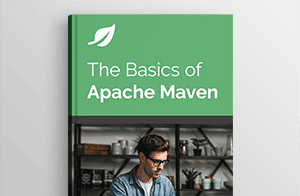Let's get started with a Microservice Architecture with Spring Cloud:
Checking if an Object’s Type Is Enum
Last updated: January 8, 2024
1. Overview
When we work with Java, understanding and manipulating object types are fundamental skills. One common challenge is checking whether an object belongs to an Enum type.
In this quick tutorial, we’ll explore various approaches and best practices for determining if an object’s type is an enum.
2. Introduction to the Problem
Enumerated types, or enums, provide a powerful way to represent a fixed set of values within a distinct type. Dynamically confirming whether an object is of an enum type can be essential for writing robust and type-safe code.
For example, we have a simple enum:
enum Device {
Keyboard, Monitor, Mouse, Printer
}Now, let’s say we have an object:
Object obj = Device.Keyboard;As we can see, obj is declared in type Object. Our challenge is to check if its type is enum. In this tutorial, we’ll learn different ways to solve this problem. Also, we’ll use unit test assertions to verify the result.
3. Using the instanceof Operator
We know all enums have the same super class: java.lang.Enum. The instanceof operator allows us to test whether an object is an instance of a particular class or interface.
Therefore, we can leverage this operator to check if an object is of Enum type:
Object obj = Device.Keyboard;
assertTrue(obj instanceof Enum);4. Using the Enum.class.isInstance() Method
The Class.isInstance() method does the same as the instanceof operator. Since we want to check the Enum type, Enum.class.isInstance(obj) solves the problem:
Object obj = Device.Keyboard;
assertTrue(Enum.class.isInstance(obj));5. Using the Enum.class.isAssignableFrom() Method
Similar to the Class.isInstance() method, the Class.isAssignableFrom() method checks whether the class on the left side is the same or a supertype of the given Class parameter. These two methods have slight differences. However, it makes no difference if we use them to solve our problem:
Object obj = Device.Keyboard;
assertTrue(Enum.class.isAssignableFrom(obj.getClass()));6. The Class.isEnum() Approach
Another way to ascertain if a class represents an enum is by using the isEnum() method provided by the Class class:
Object obj = Device.Keyboard;
assertTrue(obj.getClass().isEnum());This approach is pretty straightforward. However, it may fail to check some enum instances. So next, let’s take a closer at Class.isEnum()‘s pitfall.
7. The Class.isEnum() Pitfall: Enum Instances With Body
We know enums can have custom methods. Further, enum instances can override these methods. Next, let’s see another enum example:
enum Weekday {
Monday, Tuesday, Wednesday, Thursday, Friday,
Saturday {
@Override
boolean isWeekend() {
return true;
}
},
Sunday {
@Override
boolean isWeekend() {
return true;
}
};
boolean isWeekend() {
return false;
}
}As the code above shows, Weekday has the isWeekend() method. By default, the method returns false. However, the Saturday and Sunday instances have overridden this method to return true.
Next, let’s take the solutions we’ve learned to verify some Weekday instances and see if they can report the correct results. First, let’s take Monday:
Object monday = Weekday.Monday;
assertTrue(monday instanceof Enum);
assertTrue(Enum.class.isInstance(monday));
assertTrue(Enum.class.isAssignableFrom(monday.getClass()));
assertTrue(monday.getClass().isEnum());If we run the test, all four approaches work as expected. Next, let’s take the Sunday instance as the input and repeat the test:
Object sunday = Weekday.Sunday;
assertTrue(sunday instanceof Enum);
assertTrue(Enum.class.isInstance(sunday));
assertTrue(Enum.class.isAssignableFrom(sunday.getClass()));
assertFalse(sunday.getClass().isEnum()); // <-- isEnum() check failed when Enum values with bodyThis time, Class.isEnum() doesn’t produce a correct answer. Next, let’s understand why this happened.
When an individual enum instance overrides a method, such as Saturday and Sunday in our example, an anonymous class that acts as a subclass of the enum gets created. In such cases, Sunday.getClass() returns the anonymous subclass instead of the Weekday class. Thus, calling isEnum() on the class yields false.
Therefore, we shouldn’t consider the Class.isEnum() approach as a robust solution to this problem.
8. Conclusion
Determining if an object’s type is an enum is crucial for writing flexible and robust Java code. In this article, we’ve explored different approaches to performing the check:
- The instanceof operator
- The Enum.class.isInstance() method
- The Enum.class.isAssignableFrom() method
Furthermore, we highlighted a potential pitfall with the enumValue.getClass().isEnum() check, emphasizing that its reliability diminishes when dealing with overridden methods within enum instances. So, we shouldn’t rely on this approach as a definitive solution.
The code backing this article is available on GitHub. Once you're logged in as a Baeldung Pro Member, start learning and coding on the project.

















